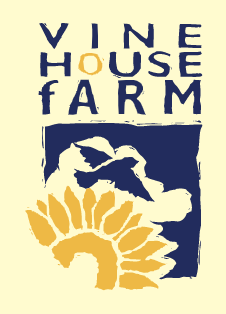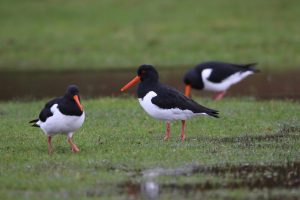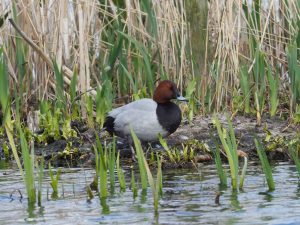
Overall, 2021 has been an average year as far as the weather is concerned, but it did start off with a bang. If you remember, it was the wettest December and January for 150 years, there was water standing in nearly every field in Deeping Fen. Our rainfall for the year was about 40mm above average, I have recorded 570mm or 22.5ins here at Deeping St Nicholas. December 2021 as you know was a wet month, but we had less than half the rain that fell in December 2020, 56mm or 2.2ins. The average rainfall for December is 43mm.
It was also a mild month, with an average temperature of 6°C, only five milder Decembers in the last 50 years, the average for December being 4.6°C. The mildest December was 2015 when the average was an incredible 9.6°C, 3 degrees above any other December and warmer than any November in the last 50 years. I look forward to us not breaking any weather records in 2022, as it is no good to us if it is too wet, too dry, too hot, or too cold.

Not much land work has been happening on our farm – we have had a kind autumn, so all the work was done on time. We like to get all the ploughing and drilling done by early December as, in general, we are not farming light land. Light land used to be useless land, as it dried out and only yielded poor crops, but with irrigation and modern fertilizer, light land has become very productive, producing all the carrots and parsnips we eat. It also grows good leeks and lettuces and any other vegetables where harvesting needs to be done all year round.
The dry autumn has allowed for a lot more direct drilling. To direct drill, the land must be dry so that the harrow tines can crumble the soil into the slots where the seeds have been dropped. If the direct drilling is done when it is too wet, the slot is smeared and then if it rains in the next few days, the seed will be sitting in water and rot. The previous two autumns have been too wet and the only way we could find suitable land, was to plough and either crumble the soil into the slots or press the sticky land together.
There is a surplus of potatoes meant for the supermarkets, these are known as packing potatoes. I think this surplus has something to do with Brexit. Before Brexit, we had two million East Europeans here and they are big potato eaters. Now that they’ve gone home, there are fewer people to eat all the potatoes we have grown.
The potato market has become so specialised that those packing potatoes are not wanted by the fish and chip shops or the French fry factories either, even though they could be the same variety. This is because supermarket potatoes are kept at about 3°C, so skin diseases do not develop. This would make the potatoes unattractive, and consumers wouldn’t buy them. Whilst kept at 3°C, the sugars alter in them, so when they are fried, the chips would turn out a dark colour which we are told is not acceptable to the British public.
The potatoes that are destined for fish and chip shops, or the French fry factories, must be kept at 8°C. Outside appearance doesn’t matter here, it is what is under the skin that counts, so they look attractive after they have been fried. We as retail customers can, in the first instance, only buy with our eyes. Once a product is purchased and tasted, then we can buy through experience.


When I go round our farmyard before daylight, it is full of Robins singing. It really is so delightful to hear them all, but of course ours is not a normal farmyard. As we are always moving seed around, small quantities are spilt, often getting wet and therefore becoming soft enough for the Robins to eat.
The large numbers of Golden Plovers and Lapwings that we had in November have moved off, but recently we have had more arriving in the area. Last month I spoke about the Lapwings, Golden Plovers and Starlings feeding in the same field, but the Starlings went off to roost just as the Lapwings and Golden Plovers were starting to feed. The Starlings are impatient little birds and have a sharp beak allowing them to probe the soil for insects. The beaks of the Lapwings and Golden Plovers don’t probe the soil, but their big eyes enable them to see in the dark. The insects come to the surface during darkness and are picked off by the Plovers as soon as they see movement on, or in, the soil.
The Whooper Swans have also moved on, last winter there was plenty of food in the Fen here because of the wet conditions, but not this year. There are many dangers for migrating birds, but whilst on their migration they can stop off wherever there is a surplus of food and, as they usually migrate in flocks, some will remember food sources from previous years. Our resident birds must feed on what we leave in and around the fields, but our harvesting machines are getting ever more efficient and leaving less behind. More areas are getting flailed which looks so nice and neat, but all the food in the grasses and plants have been killed and seeds have been pulverised.
We must keep an eye on what the local Grey Lag Geese are doing, as there are over 1,000 of them. They do not migrate; they are what we call feral geese – this strain was kept in captivity for so long that they have lost their migration instinct. If they descend on a particular field for a few days, they can do a lot of damage to a crop. We have found that parking a tractor in the field and moving it after a few days is quite effective at keeping them away from the field.
Barn Owls are the most amazing birds, if there is a chance of rearing a brood, they will lay some eggs. Vole numbers must have increased in late summer and at least three Barn Owl pairs laid eggs and produced a brood of two. These were ready to fly at the beginning of December. One brood I know didn’t survive as due to strong winds and rain at the end of November, adults would have been unable to hunt successfully, and I saw a young Owl sat on the farm road and it was hungry. I would have never known otherwise that we had young owls about, so I started checking nest boxes and found another two broods of two.
Winter is the time when I feed a lot of birds, each morning I go around the farm throwing seed under hedges, so it is less visible to the pigeons, Jackdaws and Rooks. They are finding food in other farmers’ maize plots, but I suspect it won’t be long before they move into our feeding areas. When that happens, I use large ground guards to keep them out.
Winter Bird Watches at Vine House Farm
Enjoy learning about the birds that Nicholas has attracted to the farm, through his feeding initiatives and conservation measures. Our Winter Bird Watches are held in January and February, where you will travel around the farmland in your own vehicle, stopping at our hides
Saturday 29th January
Saturday 12th February
Tours start at 10am
Tickets available on our website or call 01775 630208



